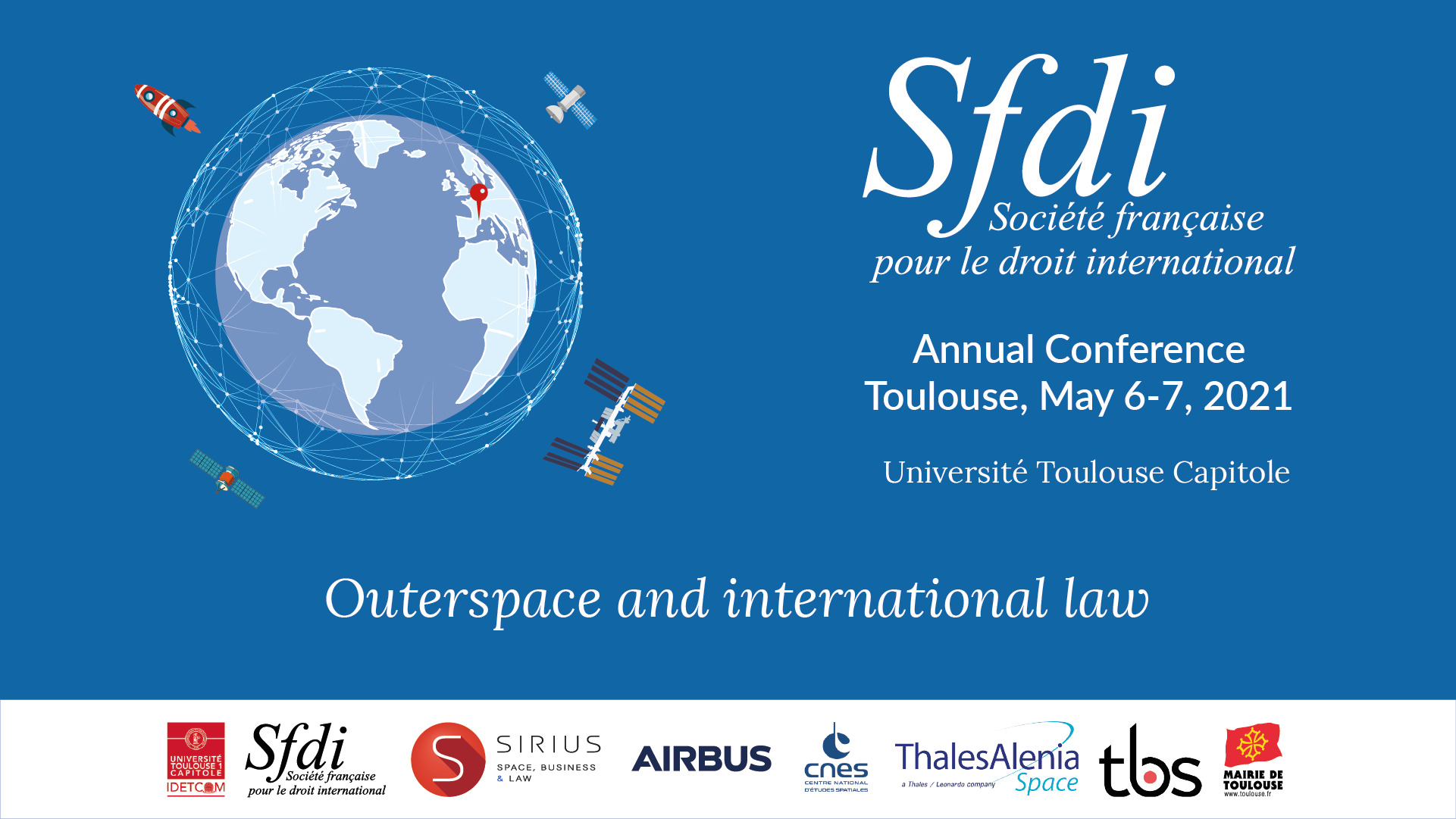Remarks of the president of the Sfdi
The next SFDI conference will be held in Toulouse on May 6 and 7, 2021 under the joint direction of Lucien Rapp and Clémentine Bories. The SFDI can rejoice in this prospect, even if the health crisis has delayed this meeting, initially scheduled for spring 2020, by one year. In this regard, we must salute the stubbornness of the organizers to maintain this conference in the face of the vagaries of this crisis. So we all hope to be able to meet in this beautiful city of Toulouse next spring.
It was high time that the SFDI returned to Toulouse since the previous colloquium of the Society in the city took place in 1974. The theme was then The development of public international law, and I remember that its publication had been very useful to me. as a student and doctoral student. I have no doubt that the same will be true of the 2021 conference, the theme of which this time is Outer Space and International Law. The two themes almost 50 years apart seem poles apart, yet outer space contains many important questions about how to frame international law. Among others, we can say, because the theme is so rich that it touches all aspects of international law as demonstrated by the presentation of Lucien Rapp in his presentation: privatization, commercialization, rampant national appropriation, defense system, etc. , often under the guise of legal uncertainties or the voluntary use of soft law.
This exploration (no pun intended) of space will therefore be fascinating because, beyond some received ideas or some approximate knowledge (including for international lawyers), we very often only have lunar knowledge ( in the figurative sense!) questions posed by outer space whose regime is too quickly judged comparable to that of the law of the sea. A study day in Brest in 2002 under the direction of Armel Kerrest on The law space and the privatization of space activities had already been able to enlighten us, and the rich themes addressed in Toulouse - too little appreciated by French-speaking doctrine - will allow us to continue and deepen this exploration of space.
At a time when the appetites of States, and particularly in the United States through the recent Artemis agreements proposed by NASA, are sharpening, and when the establishment of military commands is increasing for a space that we thought sheltered from such appetites, it is therefore high time to consider the role of international law both through the sources and the subjects and actors of this law, in other words to revisit international law in the light of the issue. of outer space because, if the law is not a weapon, it remains the reflection of technical and societal developments. This reflection has undoubtedly faded since the great texts which ventured to frame the law of outer space in the sixties and seventies, in the midst of the Cold War. However, it is never healthy that the law does not embrace the evolution of technology because this gap always leaves room for empirical solutions which give pride of place to certain state and / or commercial appetites.
This shows the importance of the planned colloquium, and the attention we will all pay to this exciting work.


































